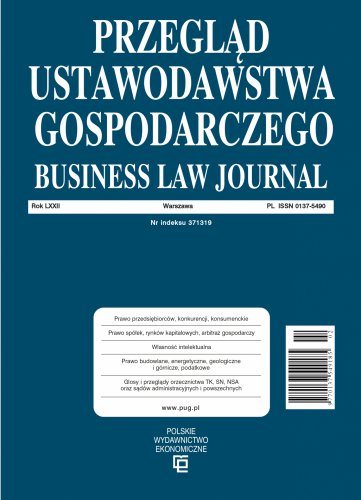Journal of Business Law 11/2020
ISBN: 0137-5490
Pages: 60
Publication date: 2020
Place publication: Warszawa
Binding: paperback
Format: A4
Publication date: 2020
Place publication: Warszawa
Binding: paperback
Format: A4
DOI: 10.33226/0137-5490.2020.11.1
DOI: 10.33226/0137-5490.2020.11.2
JEL: K22, K33, K34
DOI: 10.33226/0137-5490.2020.11.3
JEL: K25, K110
DOI: 10.33226/0137-5490.2020.11.4
JEL: K19
DOI: 10.33226/0137-5490.2020.11.5
JEL: K400
DOI: 0000-0002-2967-0919
JEL: K22
DOI: 10.33226/0137-5490.2020.11.7
JEL: K1, K2
| Odbiór osobisty | 0 € |
| Kurier Inpost | 4 € |
| Kurier FedEX | 4 € |
| Inpost Paczkomaty | 4 € |
| Free delivery in Reader's Club | from 47 € |

